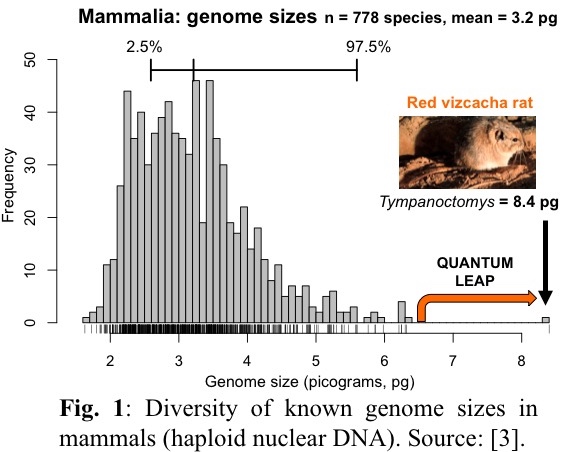Raised nearly $1k in crowdfunds for genome expansion work
Thanks to some extremely generous folks, we raised a total of $978 from 12 donors over the course of our rapid-fire crowdfunding campaign. The website Instrumentl Beta helped both to motivate and organize our fundraising page, so I am grateful to them as well.
These key funds will enable us to sequence RADseq loci from a population-level sample of three vizcacha rat species distributed across Argentina. This work mainly relies on existing dried and fresh tissues from museum collections and our collaborators Ricardo and Agustina Ojeda. We continue this work started during my brief stint as post-doc at McMaster University under the guidance of Ben Evans and Brian Golding.
Read more here! And see our NSF pre-proposal abstract below… (fingers crossed!).

UNDERSTANDING THE QUANTUM GENOME EXPANSION OF DESERT VIZCACHA RATS
Overview.
Vizcacha rats of the genera Tympanoctomys and Pipanacoctomys experienced a pronounced expansion in their genomes, making them the largest overall among mammals about twice the size of their closest relative Octomys mimax. Yet how the genomes of these endemic rodents to Argentina’s Monte Desert became so large, and why they are able to maintain this extra genetic material is unknown. This project aims to understand this anomalous event and its evolutionary consequences for vizcacha rats, using evidence from genomic and transcriptomic data to evaluate mechanisms of genome expansion by whole genome duplication (WGD) and the accumulation of repetitive genomic elements (RGE). Underpinning these mechanisms is the extent of ancestral gene flow among vizcacha rat species and whether a hybridization event catalyzed their genome expansion. This work will provide a promising framework for future study beyond the scope of this proposal, including the impact of maintaining this extra DNA upon the genetics and ecology of these desert-adapted rodents. The Field Museum of Natural History (Chicago, IL, USA) will host genetic components of this research and serve as a platform for scientific outreach. Collaborators at McMaster University (Hamilton, ON, Canada) specialize in population genomics and genome evolution, with expertise analyzing genome-scale bioinformatic data. Collaborators at IADIZA (Mendoza, Argentina) specialize in the ecology of these rodents, and will contribute to proposed phylogeographic analyses.
